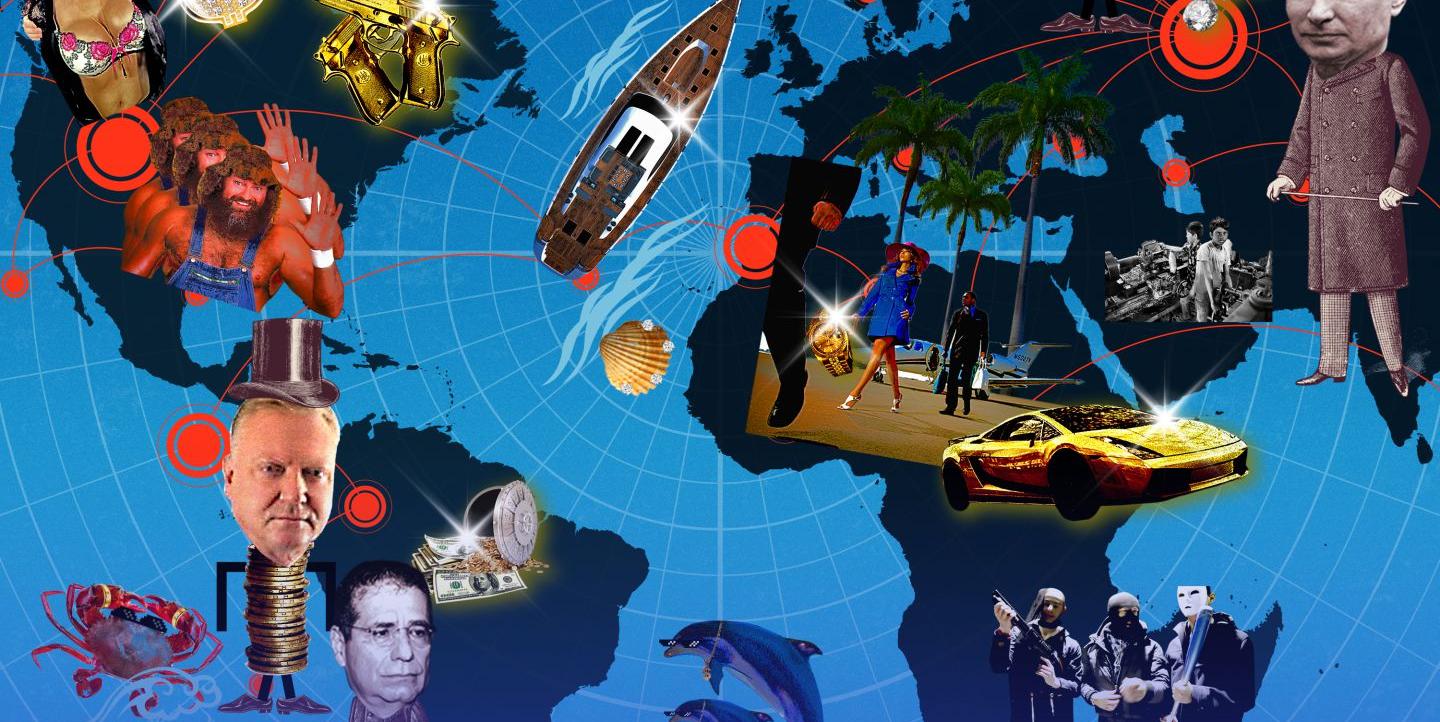Alice Brennan got the call in early November.
The International Consortium of Investigative Journalists (ICIJ) was coordinating a large-scale project involving a massive data leak and they wanted Brennan and her colleagues at Fusion to help report it out. Millions of emails, database files, PDFs and photos had been leaked from Panamanian law firm Mossack Fonseca, showing how shell companies help the rich and famous hide their money.
Brennan, an investigative reporter who had worked with ICIJ in the past, was instantly intrigued. She and two other reporters from Fusion’s investigative unit quickly signed on, joining more than 300 journalists from some 100 newsrooms around the world who were already working on the so-called "Project Prometheus." They were given access to an encrypted database and began poring through the documents.
“As soon as we got access we saw big names ... Putin, the Prime Minister of Iceland, Bashar al Assad,” Brennan says. “And it was immediately apparent that there was a group of experienced, amazing, investigative journalists around the world working on this. And that it was big.”
On April 3, a coalition of media outlets including the BBC, The Guardian and LeMonde began releasing stories related to what's now called the “Panama Papers,” exposing a widespread system of global tax evasion. The leak references 12 current or former world leaders, 128 politicians and public officials and 28 Forbes-listed billionaires. It includes information on more than 14,000 banks, law firms, corporations and other middlemen from more than 100 countries. And it’s already led to repercussions and investigations around the world. Iceland's prime minister was forced to resign, and many of the world's elite have been questioned.
The gargantuan endeavor — and the fact that journalists kept it under wraps for a year — provides a glimpse into the way journalism is evolving in the “age of the data breach.” It also shows the power of collaboration. Whereas journalists have long been known for working alone and in competition, the hundreds of journalists behind the Panama Papers investigation worked together. Though sharing is not a journalist’s instinct, ICIJ encourages it.
“No one journalist would be able to achieve something like this,” Brennan says. “This was an international campaign. And I think we should do more of them — more collaborations.”
It all began early last year, when an anonymous source leaked the files to German newspaper Süddeutsche Zeitung. Overwhelmed by the leak's magnitude, the paper contacted ICIJ, a Washington-based umbrella organization that has worked for years on large-scale, cross-border investigative collaborations. ICIJ began to form a team.
Early on, ICIJ gathered reporters to meet in-person in Munich, Washington and Johannesburg. It laid out ground rules for reporters up front. Although journalists were given autonomy with the data, participation in the Panama Papers project also came with a confidentiality agreement, and an obligation to share the biggest revelations with the group. Reporters were to follow ICIJ's schedule, and had to sign an agreement.
“The agreement basically states that you will work in collaboration, communicate regularly and abide by the rules,” says Will Fitzgibbon, an ICIJ reporter. “ICIJ relies on the good word and professionalism of all those people.”
Perhaps most importantly, ICIJ cleaned, filtered and prepared the data, then loaded it onto an ICIJ-built platform. The internal “Facebook-like” social network and database, called iHub, was the place for journalists to communicate and collaborate. Reporters had personal profiles, could send messages to each other and create separate groups and forums. If they needed help with translation, iHub was the place to seek it. Several layers of encryption and 30-digit passcodes secured the system.
“We would hash it out, talk about leads for stories, where this one was headed and that one,” Brennan says. “Depending on how many forums you join, you could get 50 or 60 notifications in a morning. It became an exciting live forum.”
ICIJ also played a curation and management role throughout the process, constantly checking in, reading through the forums and making sure participants were on the right track. If someone wasn’t posting often, ICIJ would contact that reporter directly. “We were sort of hovering over as drones,” Fitzgibbon says.
Finally, in the middle of last month, ICIJ allowed reporters to reach out to sources and people implicated in the documents. When the story went live, it was immediately called the biggest leak in the history of data journalism.
To Brennan, it was ICIJ's expert oversight coupled with the passionate, talented team of hand-picked reporters that made the project hit so hard.
“It could be messy working with 100 other media organizations, full of journalists and egos,” she says. “But ICIJ made it work. It’s been amazing.”
Almost two weeks later, many news outlets, including Fusion, continue to publish stories related to the leak — with many more on the way. Fusion will air an hourlong documentary on the Panama Papers this Sunday, April 17.
Image and video courtesy of Fusion.

